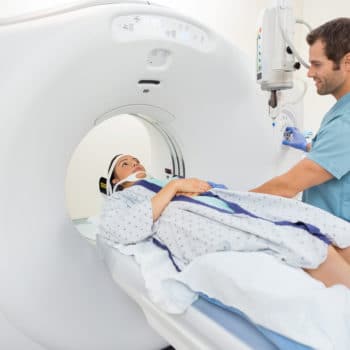Why We Love It
-
$56,100Potential Avg. Salary
-
22.1%Job Growth Rate
-
Growing DemandJob Outlook
-
Growing IndustryCareer Attribute
Cardiovascular technologists assist cardiologists with performing diagnostic tests and conducting procedures related to heart and venous disease. They conduct electrocardiograms (EKGs) and stress tests, evaluate patients with pacemakers, assist with surgeries, and perform patient intake procedures.
Recommended Schools
What is a Cardiovascular Technologist?
The following job responsibilities are common for individuals in cardiovascular technologist roles:
- Assist cardiologists with tasks related to the treatment and management of heart disease and blood vessel disorders
- Assist with the installation of pacemakers, and conduct ongoing tests of installed pacemakers
- Assist with the diagnosis of heart disease by performing electrocardiograms (EKGs) and stress tests
- Prepare patients for invasive procedures like cardiac catheterization and balloon angioplasties
- Clean testing equipment, perform patient intake procedures, and take patient medical histories
A Day in the Life
Cardiovascular technologists assist cardiologists with patients and procedures. They specialize in diagnosing and treating heart disease and blood vessel—or venous—disorders. Because heart disease is one of the leading killers, cardiovascular technologists are in high demand to assist cardiologists with diagnostics and treatments. They perform basic duties like patient intake, more advanced diagnostic testing, and even assist cardiologists with invasive surgeries and procedures.
When determining if a patient needs more advanced care, cardiovascular technologists may assist with or perform a variety of diagnostic tests. They may perform electrocardiograms (EKGs) and stress tests without the assistance of the cardiologist, and they interpret results and present their findings to the cardiologist. They may also assist cardiologists with more advanced, invasive procedures like cardiac catheterization and balloon angioplasties that are designed to find and treat blockages in arteries.
When assisting with advanced, invasive procedures, cardiovascular technologists prepare patients for the procedure by shaving entry areas and administering anesthetics. They monitor patient vitals during the procedure, and inform the cardiologists of any signs of trouble. After procedures, cardiovascular technologists conduct ongoing testing to ensure patients are healthy. They may test installed pacemakers, perform echocardiograms, or record any heart issues patients have been experiencing.
Typical Work Schedule
Most cardiovascular technologist roles are full-time jobs conducted during normal business hours. However, overtime may be required on occasion to support heavy patient volumes, and evening or weekend work may be necessary to handle emergencies.
Projected Job Growth
With the large Baby Boomer generation entering ages where heart disease is common—and with heart disease being one of the top killers—demand for cardiovascular technologists is expected to increase significantly in the coming decade.
Typical Employers
Most cardiovascular technologists are employed by hospitals, cardiologists with private practices, medical/diagnostic laboratories, or outpatient care centers.
Recommended Schools
How To Become a Cardiovascular Technologist
The basic requirement for working as a cardiovascular technologist is completion of an associate’s degree program in cardiovascular technology. Most employers prefer that the degree was awarded by an institution that’s accredited by the Commission on Accreditation of Allied Health Education Programs (CAAHEP), so it’s important to look for colleges with the appropriate accreditation. With an associate’s degree, you should qualify for entry-level cardiovascular technologist positions.
To qualify for more advanced positions, you’ll likely either need to continue your education to earn a bachelor’s degree, or you’ll need to gain a number of years of professional experience in entry-level roles. Entry-level cardiovascular technologist positions typically complete less critical tasks like collecting patient medical histories and conducting EKGs and stress tests. Only more advanced technologists are able to assist cardiologists with invasive and major medical procedures.
Some states may require cardiovascular technologists to be licensed to perform their role. Each state has its own requirements for licensure, but most require a professional certification. To become certified, you’ll need to complete an associate’s degree program and pass a certification exam. Professional certification for cardiovascular technologists is available through organizations like the American Registry for Diagnostic Medical Sonographers, or Cardiovascular Credentialing International.
Cardiovascular Technologist Salary Data
We’ve provided you the following to learn more about this career. The salary and growth data on this page comes from recently published Bureau of Labor Statistics data while the recommendations and editorial content are based on our research.
National Anual Salary
Low Range
$37,670Average
$56,100High Range
$87,170National Hourly Wage
Low Range
$18/hrAverage
$27/hrHigh Range
$42/hrHow do Cardiovascular Technologist salaries stack up to other jobs across the country? Based on the latest jobs data nationwide, Cardiovascular Technologist's can make an average annual salary of $56,100, or $27 per hour. This makes it an Above Average Salary. On the lower end, they can make $37,670 or $18 per hour, perhaps when just starting out or based on the state you live in.
Salary Rankings And Facts
#314 Nationally for All Careers
Programs and Degrees
Here are the most common degrees for becoming a Cardiovascular Technologist. a is usually recommended and specifically a degree or coursework that prepares you for the particular field, see below.
Highest Education Among Cardiovascular Technologists
- 1.8% Doctorate
- 1.9% Masters
- 22% Bachelors
- 44.3% Associates
- 21.8% College
- 7.4% High School
- 0.7% Less than High School
Job Growth Projections and Forecast
2014 Total Jobs
52,0002024 Est. Jobs
63,500Job Growth Rate
22.1%Est. New Jobs
11,500How does Cardiovascular Technologist job growth stack up to other jobs across the country? By 2024, there will be a change of 11,500 jobs for a total of 63,500 people employed in the career nationwide. This is a 22.1% change in growth over the next ten years, giving the career a growth rate nationwide of Below Average.
Growth Rankings And Facts
#41 Nationally for All Careers
What Companies Employ The Most Cardiovascular Technologists
| Industry | Current Jobs | New Jobs Needed | % Increase |
|---|---|---|---|
| General medical and surgical hospitals; private | 35,000 | 6,200 | 6% |
| Offices of physicians | 7,300 | 2,600 | 3% |
| General medical and surgical hospitals; local | 3,600 | 300 | 0% |














